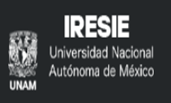POLÍTICAS DE AVALIAÇÃO E RECONHECIMENTO DE SABERES NA INGLATERRA
O QUALIFICATION AND CREDIT FRAMEWORK
DOI:
https://doi.org/10.35699/2238-037X.2021.29075Palabras clave:
Qualification and Credit Framework, Inglaterra, Política de reconhecimento de saberesResumen
Este artigo objetiva analisar o Qualification and Credit Framework, enquanto dispositivo voltado para o reconhecimento e certificação de saberes construídos na/pela experiência de trabalho no âmbito da Inglaterra. Para tal, realizamos pesquisas bibliográfica e documental, nas quais se buscou identificar as formas e instrumentos adotados para o reconhecimento e validação de saberes adotados no QCF. Além disso, visando aprofundar sobre a configuração do processo de reconhecimento de saberes, analisamos a estrutura dos referenciais para avaliação, bem como os instrumentos para a certificação da profissão de azulejista no país. A partir da discussão proposta, constatamos que o processo de avaliação e reconhecimento de saberes na Inglaterra constitui-se enquanto coleta de documentação comprovatória das competências dos sujeitos, orientada por critérios de avaliações que procuram listar todas as habilidades e conhecimentos considerados necessários para determinada profissão. Por fim, concluímos que a forma como se organiza o processo de reconhecimento de saberes pauta-se nos pressupostos da psicologia behaviorista, que pressupõe que as competências dos trabalhadores podem ser desveladas por meio da observação e questionamento aos trabalhadores, deixando de lado as imprevisibilidades do trabalho e o potencial criativo do trabalhador.
Descargas
Citas
ALPHAPLUS Ltd - Validation of vocational qualifications: final report. Inglaterra: Ofqual, 2014.
BEETHAM, Helen - E-portfolios in post-16 learning in the UK: developments, issues and opportunities. Bristol: Joint Information Systems Committee, 2005. Disponível em :http://www.jisc.ac.uk/media/documents/themes/ elearning/eportfolioped.pdf>. Acesso em: 06 nov. 2018.
CITY & GUILDS. N/SVQ guide for centres and candidates: centre guide. Londres: City & Guilds of London Institute, 2006.
___________. Recognition of Prior Learning. Londres: City & Guilds of London Institute, 2013a.
____________. Level 2 NVQ Certificate in Wall and Floor Tiling (Construction): candidate
Logbook/work-cased evidence record. Londres: City & Guilds of London Institute, 2013b.
___________. Supporting Customer Excellence Centre Manual. Londres: City & Guilds of London Institute, 2013c.
CLARKE, Linda. Trade? Job? Occupation? The development of occupational labour markets for bricklaying and lorry driving. In BROCKMANN, Michaela; CLARKE, Linda; WINCH, Cristopher (org.) Knowledge, skills and competence in the European labour market. Londres: Routledge, 2011. p. 102 – 119.
COMISSÃO EUROPEIA. Memorando sobre Aprendizagem ao Longo da Vida. Bruxelas: Comissão Europeira. 2000.
CURCIN, Milja; BOYLE, Andrew; MAY, Tom, RAHMAN, Zeeshan. A validation framework for work-based observational assessment in vocational qualifications. Coventry: Ofqual, 2014.
HARTH, Helen; HEMKER, Bas. On the reliability of vocational workplace-based certifications. Research Papers in Education, v. 28, n. 1, p. 75–90, 2013.
LESTER, Stan. The UK Qualifications and Credit Framework: a critique. Journal of Vocational Education and Training, v. 63, n. 2, p. 205-216, 2011.
LIMA, Natália. V.; PETRUS, Ângela. M. F.; CUNHA. Daisy. M. A produção de saberes no trabalho: qual o valor dos saberes investidos? Revista Pedagógica, Chapecó, v. 15, n. 31, p. 321-334, jul./dez. 2013.
NIACE. National Institute of Adult Continuing Education - Using the Recognition of Prior Learning (RPL) within the QCF: A report to the Skills Funding Agency. Londres: NIACE, 2013.
OFQUAL. Office of the Qualifications and Examinations Regulator - Regulatory arrangements for the Qualifications and Credit Framework. Coventry: QCA, 2008.
________. Identifying purposes for qualifications in the Qualifications and Credit Framework: Testing and trialling. Londres: Ofqual, 2009.
________. A Consultation on Withdrawing the Regulatory arrangements for the Qualifications and Credit Framework. Londres: Ofqual, 2014a.
________. Guided Learning Hours: A consultation on the relevance of qualifications for the Raising the Participation Age policy and estimating the size of qualifications. Londres: Ofqual, 2014b.
PIRES, Ana Luisa de Oliveira. Educação e formação ao longo da vida: análise crítica dos sistemas e dispositivos de reconhecimento e validação de aprendizagens e de competências. Tese (Doutorado em Ciência da Educação)- Faculdade de Ciência e Tecnologia, Universidade de Lisboa, Lisboa, 2002.
QCDA. Qualification and Curriculum Development Agency. Claiming credit Guidance on the recognition of prior learning within the Qualifications and Credit Framework.. Londres: QCDA, 2010a.
_______. Guidance for developing rules of combination for the Qualifications and Credit Framework. [manual]. 4.ed. Londres: QCDA, 2010b.
______. Claiming credit Guidance on the recognition of prior learning within the Qualifications and Credit Framework. Londres: QCDA, 2010c.
STASZ, Cathy. The Purposes and Validity of Vocational Qualifications. SKOPE Research Paper, n. 105. Cardiff: SKOPE, 2011.
WINTERTON, Jonathan; DELAMARE, Françoise; STRINGFELLOW, Emma; Typology of knowledge, skills and competences: clarification of the concept and prototype. Luxemburgo: Office for Official Publications of the European Communities, 2006.
Publicado
Cómo citar
Número
Sección
Licencia
Derechos de autor 2021 Trabalho & Educação

Esta obra está bajo una licencia internacional Creative Commons Atribución 4.0.
Os autores têm autorização para assumir contratos adicionais separadamente, para distribuição não-exclusiva da versão do trabalho publicada nesta revista (ex.: publicar em repositório institucional ou como capítulo de livro), com reconhecimento de autoria e publicação inicial nesta revista.












